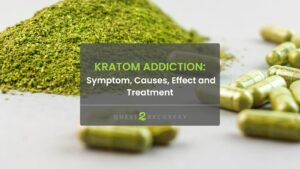In the world of addiction, there exists a phenomenon that often flies under the radar, hidden in plain sight. It’s called functional alcoholism, and it’s a complex and insidious issue that can affect individuals from all walks of life. We’re going to delve into the world of functional alcoholism, uncovering the truth about a struggle that often remains concealed behind a facade of normalcy.

What is Functional Alcoholism?
Functional alcoholism, unlike the stereotypical image of alcohol addiction, is a form of substance use disorder characterized by an individual’s ability to maintain their daily responsibilities while wrestling with alcohol dependence. In essence, it’s the art of appearing completely fine on the outside while grappling with a silent and potentially life-threatening battle on the inside.
At its core, functional alcoholism shares many of the same characteristics as traditional alcoholism. It involves an unhealthy and often compulsive relationship with alcohol. However, what sets it apart is the remarkable skill that individuals with functional alcoholism possess in concealing their addiction from those around them.
The Hidden Signs
Functional alcoholism is adept at disguising itself, often making it challenging for loved ones or even the individuals themselves to recognize the problem. Here are some of the subtle signs and behaviors associated with functional alcoholism:
- Maintaining Appearances: Individuals with functional alcoholism often go to great lengths to appear normal and in control. They may excel in their professional and personal lives, effectively concealing their alcohol use.
- Drinking Alone: Frequent solitary drinking sessions can be a telltale sign. Functional alcoholics may isolate themselves to avoid scrutiny.
- Rationalization: They might downplay their drinking, attributing it to stress relief or relaxation, making it seem like a normal part of their routine.
- High Tolerance: Functional alcoholics can develop a high tolerance for alcohol, allowing them to consume significant amounts without showing obvious signs of intoxication.
- Withdrawal Symptoms: Despite maintaining appearances, functional alcoholics can experience withdrawal symptoms when not drinking, such as anxiety, irritability, or even physical symptoms like tremors.
- Secret Stashes: Some may hide their alcohol, making it difficult for others to discover their consumption.
- Denying the Problem: Denial is a hallmark of functional alcoholism. They may vehemently deny having an issue with alcohol, even when presented with evidence to the contrary.
The Dangers of Denial
Denial is a powerful psychological defense mechanism that allows functional alcoholics to continue their destructive behavior while avoiding the acknowledgment of a problem. Here are some reasons why denial is prevalent and the risks associated with it:
- Self-Preservation: Denial often arises from a subconscious need to protect oneself from the stigma and shame associated with addiction.
- Fear of Change: Accepting that one has a problem with alcohol necessitates change and the often-difficult journey of recovery. Denial allows individuals to avoid confronting this fear.
- Social Isolation: Maintaining the facade of normalcy becomes increasingly isolating. Denial can lead to strained relationships and a sense of loneliness.
- Physical and Mental Health Consequences: By refusing to acknowledge the issue, individuals may experience deteriorating physical and mental health, which can lead to more significant long-term consequences.
- Delayed Recovery: Perhaps the most significant danger of denial is that it postpones the critical step of seeking help and embarking on the path to recovery.
Seeking Help at Quest 2 Recovery
Quest 2 Recovery Treatment Center is here to provide compassionate and effective support to individuals grappling with functional alcoholism. Our approach to treatment is comprehensive, recognizing the unique challenges that functional alcoholism presents. Here’s what you can expect when you reach out to us for help:
- Personalized Treatment: We tailor our treatment programs to address the specific needs and circumstances of each individual, ensuring a customized and effective approach to recovery.
- Holistic Approach: Our holistic approach to recovery goes beyond addressing the addiction itself. We focus on healing the mind, body, and spirit, providing a solid foundation for lasting recovery.
- Experienced Professionals: Our team of experienced addiction specialists and therapists is dedicated to guiding you or your loved one through the recovery journey with care and expertise.
- Safe and Supportive Environment: At Quest 2 Recovery, you’ll find a safe and supportive environment where you can open up about your struggles without judgment.
Breaking the Chains of Denial
If you or someone you know is grappling with functional alcoholism, breaking free from denial is the first crucial step toward recovery. Here are some strategies to help you confront the truth:
- Self-Reflection: Take time to honestly assess your relationship with alcohol and its impact on your life.
- Seek Support: Reach out to trusted friends, family members, or professionals who can provide guidance and encouragement.
- Education: Learn about the nature of addiction and functional alcoholism to gain a better understanding of the challenges you’re facing.
- Professional Help: Consider seeking professional help at Quest 2 Recovery to receive the support and tools needed for recovery.
- Acceptance: Understand that seeking help is not a sign of weakness but a courageous step towards a healthier, happier life.

Shining a Light on Functional Alcoholism: Your Path to Recovery with Quest 2 Recovery
Functional alcoholism is a hidden struggle that affects countless individuals, but it doesn’t have to remain in the shadows. Recognizing the signs, acknowledging the dangers of denial, and seeking help are the first vital steps toward recovery. At Quest 2 Recovery Treatment Center, we are committed to providing the guidance, support, and resources you need to break free from the grip of addiction.
If you or someone you know is facing functional alcoholism, we encourage you to take action today. Reach out to Quest 2 Recovery for a confidential and compassionate consultation, and let us help you embark on your journey to recovery. Remember, you are not alone, and there is hope for a brighter, alcohol-free future.









